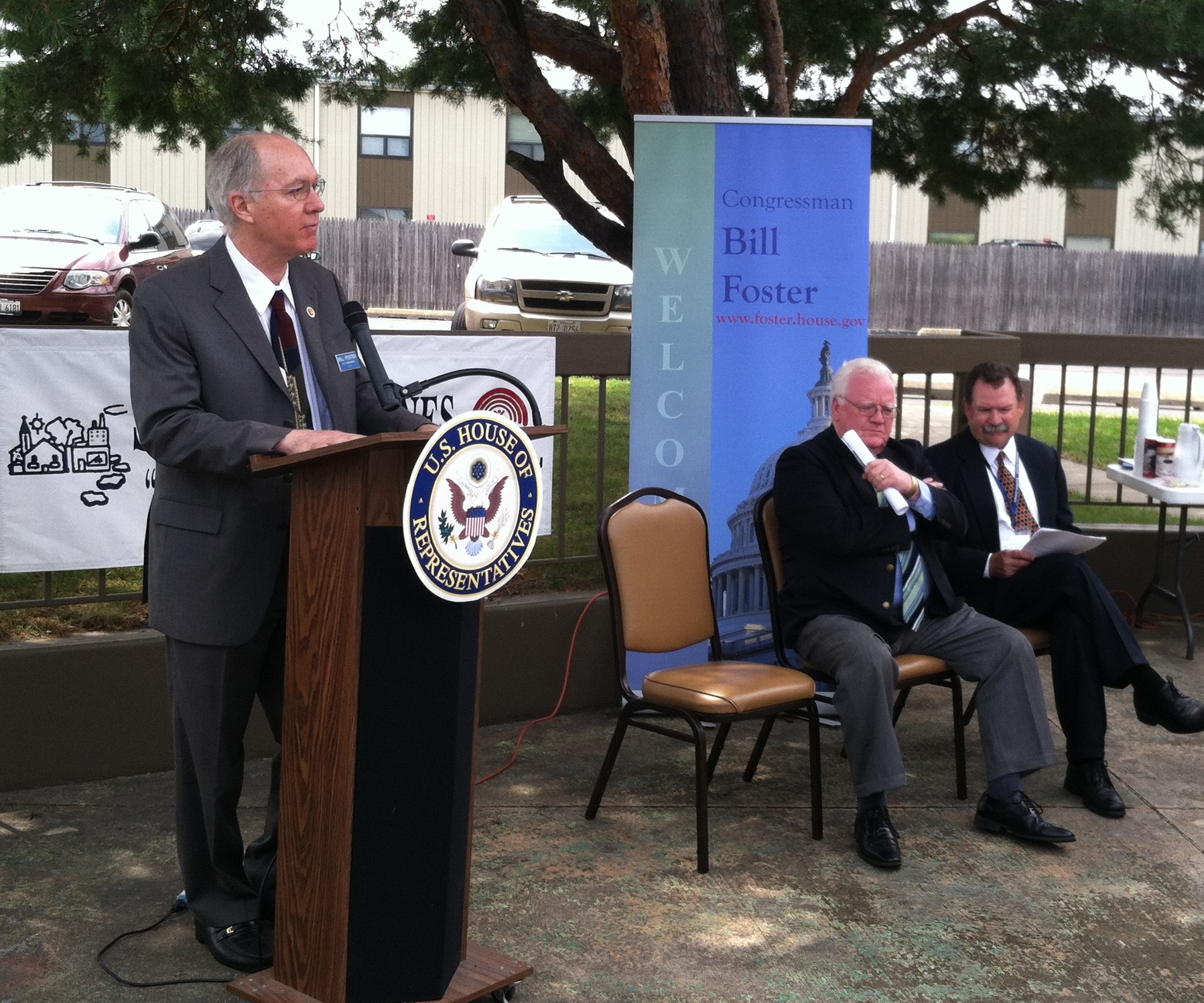Foster, Joliet Community Leaders Discuss Legislation to Combat Heroin Abuse, Increase Resources for Treatment

Joliet, IL – Today in Joliet, Congressman Bill Foster met with community leaders to discuss the Expanding Opportunities for Recovery Act. The legislation, which Foster introduced last week, would create a grant program to increase access to in-patient rehabilitation services for heroin and other opiates.
Foster was joined by Will County Executive Larry Walsh and Executive Director of Stepping Stones Treatment Center Peter McLenighan.
More information on the legislation is available here.
"Heroin addiction is devastating our communities. I have heard from too many Illinois families that have been impacted by the consequences of heroin addiction. We must take action to reverse this growing epidemic," said Foster. "Countless community groups, municipalities and law enforcement officials are working to combat heroin abuse at the local level, but we must do more to support them at the federal level. That's why I am introducing this legislation to increase access to rehabilitation services so we can set people on the road to recovery."
"All of us know how heroin and other opiod drugs have plagued our communities. And we also know when working together we can find solutions to help reduce the number of overdose deaths. I applaud our representative Bill Foster for sponsoring this legislation that will bring more dollars to treatment programs and help save lives," said Walsh.
"Stepping Stones appreciates the efforts of Congressman Foster to increase the availability of substance use disorder treatment. Our greatest difficulty is that we lack adequate funding for people without private insurance or Medicaid, and people can face a discouraging and sometimes disastrous wait for admission. Congressman Foster's efforts could provide both more timely services and savings in overall societal costs," said McLenighan.
Opioid addiction is a growing public health crisis that affects people of every race, income, and educational level. In 2010 alone, opioids contributed to over 16,000 deaths. Moreover, each year drug abuse and addiction costs over $534 billion, but the National Institute on Drug Abuse (NIDA) estimates that we could save $4-$7 in criminal justice costs for every dollar invested in treatment and prevention.
While in-patient rehabilitation is a proven effective treatment for opioid abuse, many people lack health insurance and are unable to afford such treatment. In addition, many insurance providers require patients to exhaust other options, like out-patient treatment and counseling, before they will cover in-patient rehabilitation. These obstacles prevent opioid abusers from receiving the treatment they need to enter recovery.
This legislation removes barriers to addiction treatment by providing grants for residential/in-patient opioid addiction treatment for qualified individuals. For an individual to qualify, they must either lack health insurance or have health insurance that places a barrier to in-patient treatment, such as a requirement that cheaper but perhaps less effective treatments be exhausted first. Qualified individuals would be able to receive up to 60 consecutive days of treatment under this grant program.